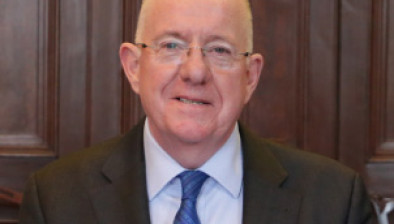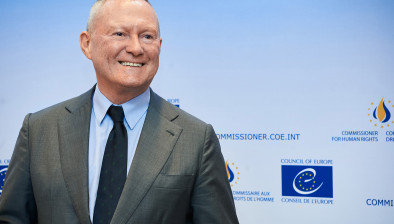Professor Shane Kilcommins appointed provost and deputy president at University of Limerick

Professor Shane Kilcommins
Legal academic Professor Shane Kilcommins has been appointed to the role of provost and deputy president at the University of Limerick (UL).
He will take on the role from Friday 1 July, succeeding Professor Nigel Healy, who was appointed interim provost in late 2020.
A graduate of UL, Professor Kilcommins worked as an associate professor in law at UCC prior to joining UL in 2014. His areas of expertise are evidence law, criminal procedure, penology and legal philosophy.
Since joining UL, he was head of the School of Law between June 2014 and December 2020 and has served as executive Dean of the Faculty of Arts, Humanities and Social Sciences (AHSS) since April 2021.
Professor Kilcommins is a Fulbright scholar and works with various national and international bodies in criminal justice related areas. He is an examiner for the Law Society of Ireland, and sits on the board of the Victims’ Rights Alliance.
Professor Kerstin Mey, president of the University of Limerick, said she wished Professor Kilcommins “every success in his new role”.
“I would like to thank Shane for his outstanding commitment to the university and his focused, inclusive and systematic work as executive Dean of AHSS and as a member of the executive committee,” said Professor Mey.
Professor Kilcommins said: “As an alumnus, I am both honoured and humbled to be able to serve the University of Limerick in the role of provost and deputy president. I have always been very grateful for the opportunity to work with the outstanding staff and students in UL.
“I look forward now to further contributing to our understanding of what it means to be a 21st century university operating in the vibrant Mid-West region of Ireland, and how we as a community continue to provide public value in terms of teaching and research excellence, global and regional engagement, innovation, impact, accessibility and inclusiveness.”










